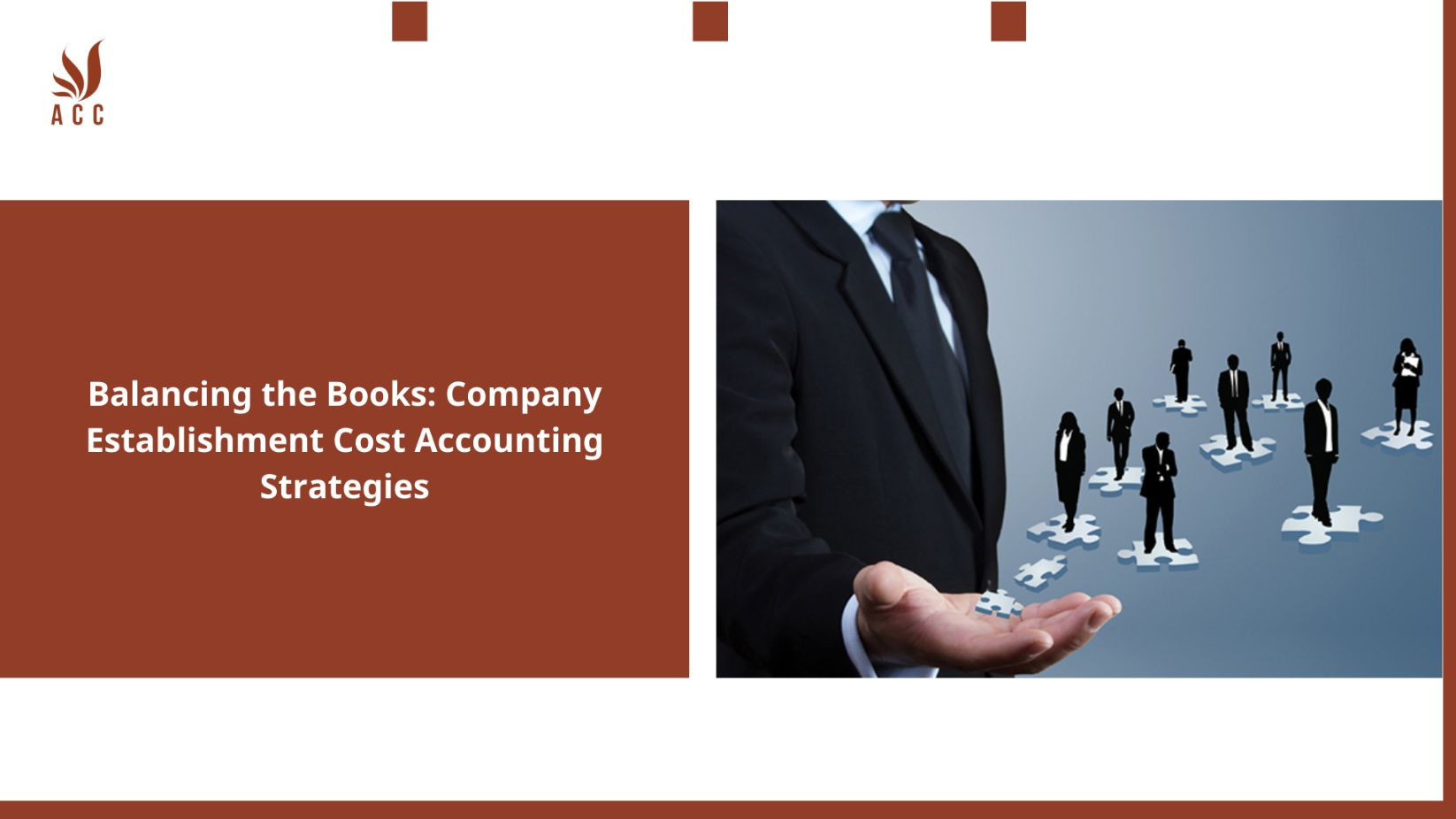Embarking on the journey of establishing a new business is an exhilarating endeavor, but the financial landscape can be intricate. Company establishment cost accounting plays a pivotal role in steering through this complexity, involving the meticulous tracking, recording, and management of expenses associated with forming a new business entity. In this guide, we'll delve into essential considerations for effective company establishment cost accounting, helping you not only navigate the financial terrain but also position your business for enduring success. So, what doess dissolving a limited company mean? ACC Group will address your question.

1. Identify and Categorize Costs:
At the core of effective cost accounting lies the meticulous identification and categorization of expenses. From legal fees to marketing expenses, distinguishing and categorizing costs sets the stage for comprehensive financial planning.
2. Budget Development:
Crafting a comprehensive budget is akin to drawing up a financial roadmap. This roadmap itemizes each cost category, providing a clear overview of expected expenses and preventing the pitfalls of overspending.
3. Track Expenses:
Efficient expense tracking is the backbone of transparent financial management. Utilize accounting software or spreadsheets to record expenses promptly, including essential details such as date, description, and amount.
4. Separate Capital and Operating Costs:
Distinguish between capital expenditures and operating expenses. While capital costs are long-term investments, operating costs are the ongoing expenses that keep the business engine running.
5. Monitor Cash Flow:
A vigilant eye on cash flow is imperative. Establish a separate business bank account to manage financial transactions related to setting up the company, ensuring a smooth financial operation.
6. Plan for Contingencies:
In the unpredictable terrain of business establishment, contingencies are your safety net. Include a contingency fund in your budget to cushion the impact of unforeseen expenses or delays.
7. Consult with Professionals:
Insights from legal, accounting, and financial professionals can be invaluable. Engage with experts to navigate tax implications, uncover cost-saving strategies, and ensure compliance with financial regulations.
8. Regularly Review and Adjust:
Flexibility is key. Regularly review your establishment costs against the budget, adjusting your financial plan to stay on track and make informed decisions about resource allocation.
9. Document Transactions Thoroughly:
Paperwork may seem tedious, but it's the bedrock of accountability. Keep receipts, invoices, contracts, and financial records well-organized for auditing, tax filings, and financial reporting.
10. Monitor Return on Investment (ROI):
Assess the effectiveness of your establishment expenditures by evaluating the return on investment for various expenses, especially in marketing and branding efforts.
11. Prepare for Ongoing Operating Costs:
As your business transitions from establishment to regular operations, update your budget and accounting practices. Ensure a seamless financial transition by anticipating and preparing for ongoing operational costs.
12. Conclusion: Building Financial Stability for Future Growth
In conclusion, effective company establishment cost accounting is not just a bureaucratic formality; it's a strategic step toward building a financially stable and sustainable business. By following these key considerations, business owners can make informed decisions, allocate resources efficiently, and ensure their venture is well-prepared for future growth and financial stability.
Q&A
-
What is the purpose of company establishment cost accounting?
The purpose of company establishment cost accounting is to accurately track, record, and manage all expenses associated with setting up a new business. It helps business owners plan their finances, budget effectively, and ensure that they allocate resources efficiently during the establishment phase.
-
What are some common categories of costs that should be considered in company establishment cost accounting?
Common cost categories to consider include:
- Legal and registration fees.
- Permits and licenses.
- Office space and related expenses (rent, utilities, furnishings).
- Equipment and technology purchases.
- Marketing and branding expenses.
- Professional service fees (legal, accounting, consulting).
- Contingency funds for unforeseen expenses.
-
How can company owners effectively manage and control establishment costs?
Effective management of establishment costs involves:
- Creating a detailed budget with estimates for each cost category.
- Tracking expenses as they occur using accounting software or spreadsheets.
- Distinguishing between capital expenditures and operating expenses.
- Monitoring cash flow to ensure adequate funds are available.
- Seeking professional advice for cost-saving strategies and compliance.
- Regularly reviewing and adjusting the budget as needed.
-
Why is proper documentation crucial in company establishment cost accounting?
Proper documentation, such as receipts, invoices, contracts, and financial records, is essential for several reasons:
- It provides a clear audit trail for financial transactions.
- It facilitates accurate financial reporting and tax compliance.
- It helps in assessing the effectiveness of establishment expenditures.
- It supports informed decision-making and resource allocation.
Company establishment cost accounting is a foundational step in the financial planning and management of a new business. It ensures that financial resources are used wisely during the setup phase, setting the stage for future financial stability and growth.
Nội dung bài viết:






Bình luận